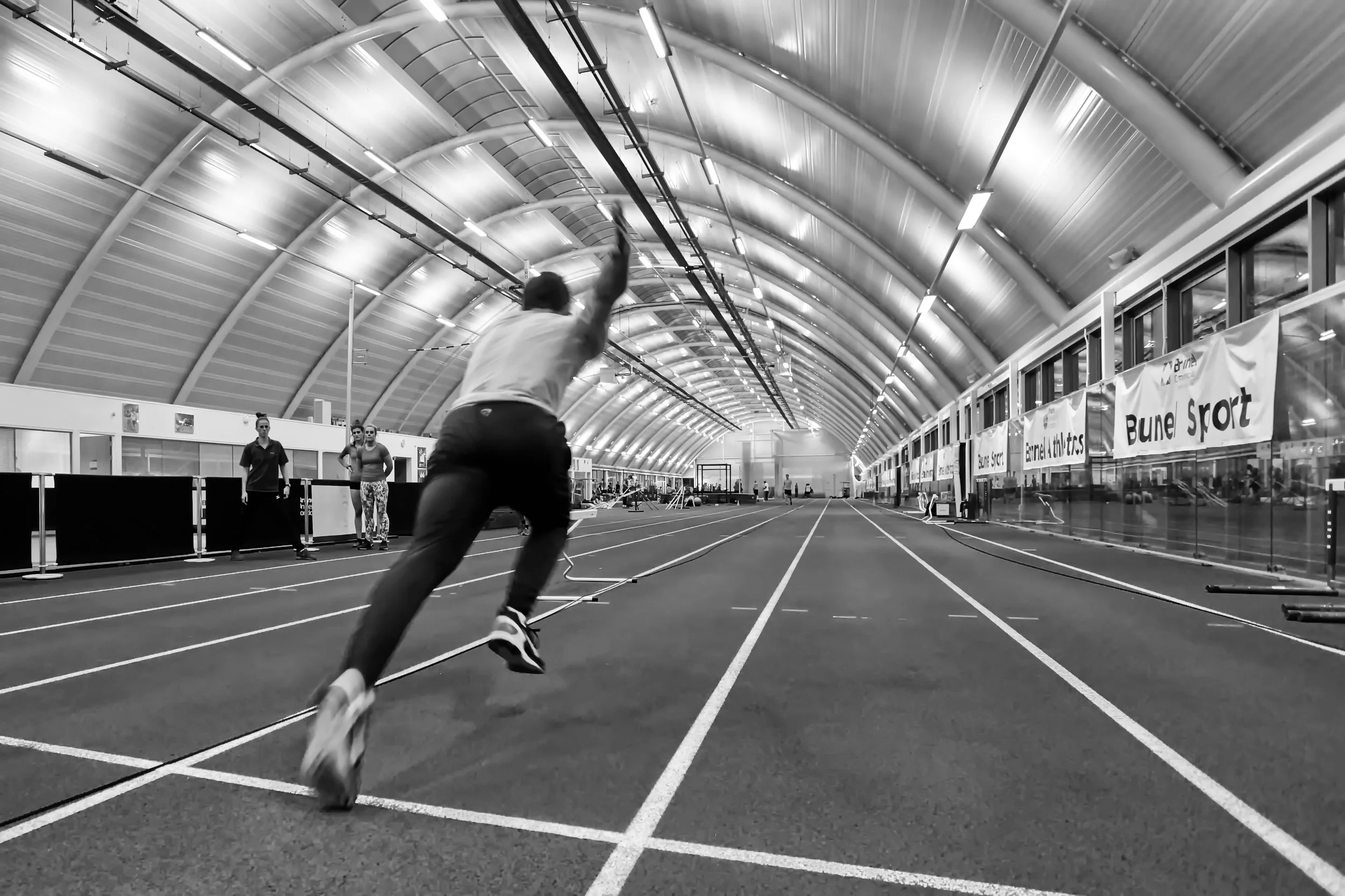At the European Under 23 Championships in Bydgoszcz West London Track & Field had representatives both competing and coaching. Head sprints & Hurdles coach Laura Turner-Alleyne was a member of the coaching staff and sprinter Clieo Stephenson was a member of the 4x100m relay team. After the championships we sat down with Clieo to ask her a few questions on her experience at the championships.
Clieo with WLTF Lead Therapist - Gareth Degg
Thanks for taking the time to talk with us today Clieo. What were your immediate thoughts when you found out you had been selected for the team?
I had very mixed emotions when being selected for the team. Due to an injury that developed at the beginning of the season, I found it difficult to achieve my goal of running in the individual 100m race. However, despite not running as fast as I had hoped this season, it was still an honour to be selected for the relay and I was excited to experience my final age group international championships.
Did you have to change any of your plans for the season and if so how did you do this?
My training with Laura is extremely planned, so I had known what my season looked like way before the season had even begun. However, being selected for various teams including being invited to run in Geneva, Switzerland, were things we were not able to plan for. This meant I was running on weekends I had not planned to run on and having to pull out of other competitions to do so. When invited or selected for other competitions, Laura and I would always ensure that changing my plan would benefit my season. If it would benefit my build up to the European Championships, then I would adapt and fit my schedule around that change.
Was this your first time competing for Great Britain at an age group championships?
No, I had been lucky enough to represent Great Britain at the European U20 Championships in Rieti, Italy in 2013 on an extremely successful team! The experience however, was very different this time round with the athletes allowed to be more independent!
How helpful was it having your coach as a member of the team staff?
I loved having my own personal coach there with me as it allows me to treat the championships just like any other competition I would do in the UK. With Laura being an experienced athlete herself, she understood the demands and was able to share her experience with both myself and the other members in the team. It’s great because Laura is able to monitor my build up and suggest any changes or adaptations to my preparation when she is at the championships too.
“With Laura being an experienced athlete herself, she understood the demands and was able to share her experience with both myself and the other members in the team.”
What did you find most difficult about being away?
The most difficult thing for me is getting used to a different bed! If it’s not what you are used to, it can be difficult to get sleep on the first couple of nights. I would suggest bringing your own pillow just in case the pillows are not to your taste! Also, the food in other countries can often be not to the standard you would hope when you are competing. However, in Poland the food at the hotel was great!
Clieo with WLTF head sprints & hurdles coach - Laura Turner-Alleyne
What would your advice be to any young athletes that have ambitions of competing for Great Britain?
My advice would be to not change anything that is working for you. To be world class and represent your country, it does not mean doing different things that may work for one person and not for you. Everybody works and thrives differently, so if it works for you, keep doing it.
How are you going to use your experiences from the championships to help you continue moving forward with your training?
I am going to take the positives of being selected to motivate me going forward in my training. Although I may not have got the selection that I wanted, not being able to compete to my best ability and still be selected is promising. It excites me for the future as I know that when I am able to fulfil my potential, I will be exceeding my expectations and goals!
With less than a month to go for most in the 2016/2017 season, we would like to wish everyone the best of luck with their final competitions of this year. If you are interested in joining West London Track & Field please contact us via the following emails:
Sprints & Hurdles - laura@westlondontrackandfield.com
Pole Vault - ellie@westlondontrackandfield.com















